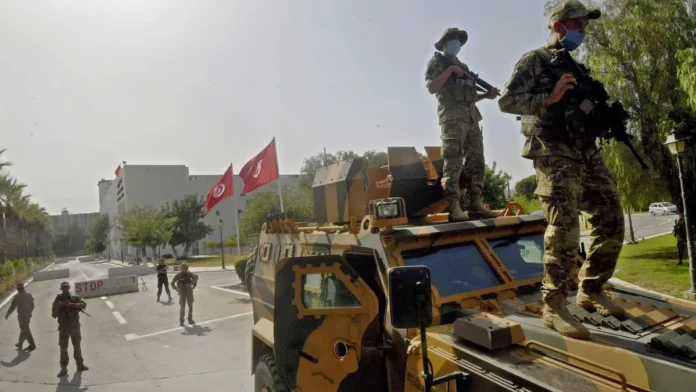Author: Hicham Bou Nassif
Affiliation: Claremont McKenna College (Claremont, California, USA)
Organization/Publisher: Journal of Democracy/ Johns Hopkins University Press
Date/Place: January 2022/ USA
Type of Literature: Journal Article
Number of Pages: 13
Link: https://muse.jhu.edu/article/843610
Keywords: Tunisia, Military, President, Democracy, and Dictatorship
Brief:
Almost a decade after the Arab Spring, the Tunisian military is no longer supporting the democracy in the country. With President Kais Saied having emerged as a dictator and shutting down all the institutions showing resentment, the military is extending its support too. In July of 2021, the President revoked Article 80 from the Constitution, transferred most of the powers to the President, dismissed the Prime Minister, and suspended the Parliament for thirty days. Saied’s closure of Parliament goes against the laws of the Tunisian Constitution. Analysts decipher Saied’s power grab as unconstitutional, undemocratic, and a self-coup. Even though Article 80 states that the President can take measures if necessitated by exceptional circumstances, consulting the prime minister is required. This article analyzes the change in the military’s approach from being a democratic ally in 2011 to a collaborator in an apparent autocratic restoration a decade later. According to Article 18 of the Tunisian Constitution, the Tunisian army should maintain a neutral position and support the civil authorities following the laws. However, they have helped Saied deploy forces to close the Prime Ministers’ office and the Parliament. The author cites six reasons behind this shift. The first reason is General Rachid Ammar. In 2011, he refused to take the orders of Ben Ali to fire at the protestors, and soon after Ben Ali’s exile, he emerged with political clout in Tunisia. The second reason is that after Ben Ali, the Interior Ministry could never reoccupy the central position; instead, the power was distributed among all the institutions, including the military. Third, the post-2011 Tunisian state has also made amends for the 1991 Barrakat Essahel affair, restoring the military’s honor. Fourth, the military has increased its participation in democratic politics and civilian government. Fifth, the Tunisian military courts support the President against his rivals. Sixth, the military officers have become more inclusive and nationally representative. In the end, the author claims that the alliance between the military and the President is not unbreakable, provided if there are protests like 2011 again and the West withdraws its support for Saied. Until then, the restoration of democracy is perceived as impossible in Tunisia.
By: Ruby Clayton, CIGA Research Associate




